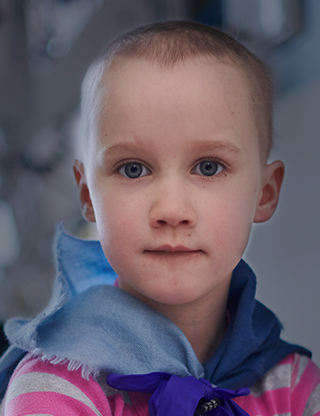The Pulse – COVID-19 Vaccines and Kids (Part II)
January 31, 2022
Pediatric infectious diseases expert Dr. Manish Sadarangani, medical microbiologist and pediatric infectious disease physician, Dr. David Goldfarb, and pediatric immunology and allergy specialist, Dr. Kyla Hildebrand, share their latest studies on COVID-19, vaccines, and the impact of these findings for children in BC and beyond.
See below to watch a recording of the Pulse.
Q&A Highlights with Dr. Sadarangani, Dr. Goldfarb and Dr. Hildebrand
- How seriously is it impacting children? Are children being hospitalized, and what is the outlook for them? What should parents pay attention to for their kids? 11:07
- If a child has been infected, will they develop any immunity against being infected again? 15:40
- Share some general insight on the importance of getting kids vaccinated – including the COVID vaccine, flu shots, routine immunizations. How can vaccines treat preventable diseases? 17:58
- Has having the Family Immunization Clinic been beneficial in the fight with COVID? Do you offer COVID vaccines to kids? 21:22
- How has BCCH experts helped inform decisions or actions at the local and national levels? 24:39
- How has BC Children’s led advances in COVID-19 testing, such as the first-ever COVID-19 gargle test? 31:10
- What are some side effects or allergy reactions recorded to date? What has Children’s seen, if anything? 37:11
- What are some of the most common vaccine hesitancy concerns you’ve heard from parents and others? What information do you have regarding these concerns? 39:37
Other Questions
As there wasn’t time to answer all the thoughtful questions received during the event, we have followed up with Drs. Manish Sadarangani, Goldfarb and Hildebrand to answer more of your questions related to vaccines, infectious diseases and research.
We recommend everyone to follow the public health guidance which is updated regularly. See here for more information: https://www.healthlinkbc.ca/more/health-features/coronavirus-disease-covid-19
For more information on specific illnesses/conditions, please see pages 4 and 5 in this document: http://www.bccdc.ca/resource-gallery/Documents/Guidelines%20and%20Forms/Guidelines%20and%20Manuals/Epid/CD%20Manual/Chapter%202%20-%20Imms/Part4/COVID-19_mRNA_Vaccine_Comirnaty_Pediatric.pdf
There is currently no data to suggest that is the case, but a relatively small number of adolescents and young children have received 3 doses using the extended interval schedule.
To learn more about the side effects and/or risks of the vaccine for children with specific conditions or allergies, please refer to pages 4 and 5 of this document: http://www.bccdc.ca/resource-gallery/Documents/Guidelines%20and%20Forms/Guidelines%20and%20Manuals/Epid/CD%20Manual/Chapter%202%20-%20Imms/Part4/COVID-19_mRNA_Vaccine_Comirnaty_Pediatric.pdf
There is no evidence to suggest that and no plausible biological mechanism by which that would occur.
There are some short-term side effects which in general terms affect the nervous system, such as headache. Rare cases of ‘nerve system’ disorders have been reported with mRNA vaccines in adults (such as facial paralysis/Bell’s palsy). For more information, please refer to this document: http://www.bccdc.ca/resource-gallery/Documents/Guidelines%20and%20Forms/Guidelines%20and%20Manuals/Epid/CD%20Manual/Chapter%202%20-%20Imms/Part4/COVID-19_mRNA_Vaccine_Comirnaty_Pediatric.pdf
There is no evidence to suggest that and no plausible biological mechanism by which that would occur.
Data collected at BCCH and across Canada so far have not identified T1D as a specific risk factor for worse outcomes with COVID-19. The most consistent finding from multiple studies indicates that the presence of multiple co-morbidities is the most significant risk of more severe disease. For more information, please visit the following resource:
Short term (2-3 months) effectiveness in adults who have had at least 2 doses plus a booster of an mRNA vaccine is ~60% against any symptomatic infection and ~90% against hospitalization. We do not have vaccine effectiveness data specifically for children.
Yes – current recommendations for children 5 years and older are 2 doses for most individuals and 3 doses for those with moderate to severe immunosuppression, plus a booster recommended for some. For more information, please see here: https://www.canada.ca/en/public-health/services/immunization/national-advisory-committee-on-immunization-naci.html
Antibody responses in children aged 5-11 years old receiving 1/3 dose was similar to young adults receiving full dose.
Please note, if your question was specific to your child or family, please reach out to your medical team or family physician directly.
Resources
Kids never stop fighting. What if you never stop giving?
When you give a monthly gift, you’re choosing to stand alongside us to show every kid who needs our help that you’ll never stop caring.
Give monthly

